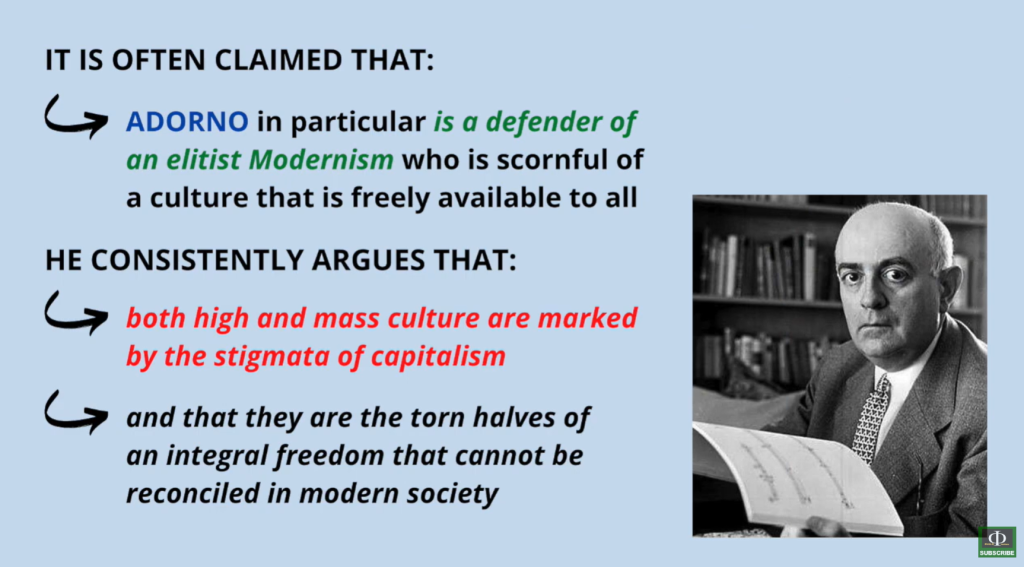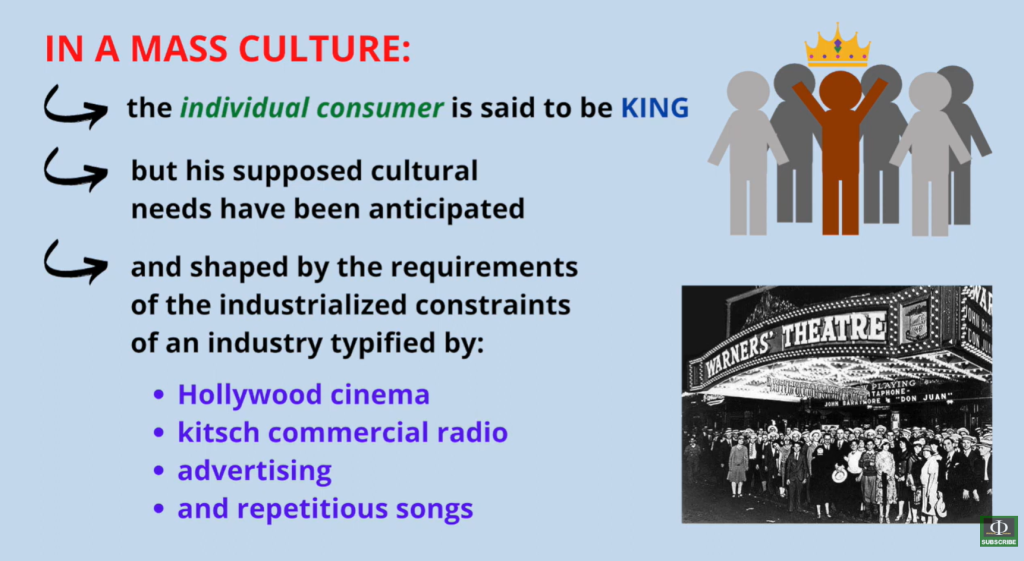The idea of the “Culture Industry” was first introduced by Theodor Adorno and Max Horkheimer. They argued that in modern society, culture has turned into a kind of business instead of something creative or artistic. Things like music, movies, and even social media content are made mainly to make money, not really to share meaning or emotion. Adorno once said that modern culture is “infected by sameness,” and honestly, that’s still true today.
If you look at pop culture now, it’s easy to see what they meant. Pop songs on the radio often sound really similar — producers already know what kind of beat or lyrics go viral. Platforms like Netflix and Spotify tell us what to watch or listen to next, pretending to give us freedom, but actually, they guide us to stay longer. It’s clever marketing, but also kind of manipulative. We think we are choosing, but the system already chose for us.
Social media works in a similar way. On TikTok or Instagram, trends repeat again and again — the same dance, the same filter, the same challenge. People think they’re being creative, but most of the time, they just copy what’s already popular. That’s exactly how the culture industry keeps people watching, scrolling, and buying.


Nevertheless, I don’t think everything is negative. These platforms also provide opportunities for small creators and independent artists to share their works. A song recorded in someone’s bedroom might go viral overnight. It shows that even in this large system, there is still room for true creativity and expression. Therefore, perhaps the cultural industry is not just about control – it also opens some doors.
But I think the most important thing is to stay aware. The culture industry shapes what we believe is “cool,” “normal,” or “successful.” When we see a viral song or movie trend, we should ask: why is this popular? Who is benefiting from it? Thinking like this doesn’t mean rejecting culture, but understanding how it influences us. That’s something Adorno and Horkheimer really wanted people to realise — that culture isn’t neutral, it’s designed to guide our choices, often without us noticing.
If you want to learn more about the cultural industry, you might as well watch these two videos.
Adorno, T.W. and Horkheimer, M. (1997) Dialectic of Enlightenment. London: Verso.
Durham, M.G. and Kellner, D.M. (2006) Media and Cultural Studies: Keyworks. Oxford: Blackwell Publishing.


Hi! I really like the way that your blog is laid out and includes some visuals along with videos. Extra information is always useful!! I agree that it’s not always a negative thing, and it does give people opportunities to create a life for themselves that they might not be able to achieve otherwise. I appreciate the way you highlighted the fact that people often think they’re being creative when, in reality, they are just copying trends. I never thought about it this way before. It’s given me a new perspective on the influence of online content.